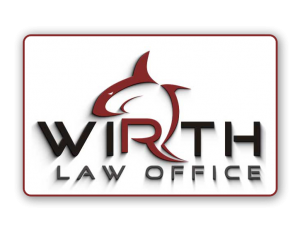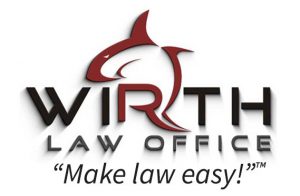McGirt Has Impacted Oklahoma
Video Transcribed: Can you transfer your case to tribal court? And what does it mean to go McGirt? Hi, my name is Ryan Cannonie. I’m an attorney in Tahlequah office here for Wirth Law Offices, and I hear this a lot. People call and they say they want to transfer their case to tribal court, or they say, “I want to go McGirt or do that McGirt thing or file the McGirt transfer.” And I think there’s a little bit of confusion on those.
So McGirt is a case that applies to the Muscogee Nation. Used to be called Muscogee Creek Nation, and it involves their reservation. And it was the first of the reservation cases to go out and get… The Supreme Court approved that the Muscogee have a reservation. The State couldn’t prosecute Native defendants on the Muskogee reservation.
Now, after that, we had the Hogger decision for the Cherokees. We’ve had Sizemore for the … I always forget … I think Chickasaws and Bosse for the Choctaws. I could have Sizemore and Bosse confused there. But we’ve had other decisions come out since then. Primarily I only deal with the Cherokee Nation and Muskogee Nation, so those are the ones that impact my practice the most.
But since these have come out, people have been asking, “How do you transfer your case to tribal court?” Well, the short answer is you don’t. So when you want to file and it’s not a McGirt motion, it’s actually called either a motion to dismiss if you have a pending charge or a motion for post-conviction relief if you have a conviction already or it’s already been decided. You’ve already been sentenced.
So if you follow one of these and the court hears it and you and your attorney, hopefully, us, are able to show proof where you are Native and you fit all the requirements needed, then your case is actually dismissed. They go back and either if it’s a pending case, they just dismiss it. If it’s a conviction case, they go back and dismiss it, which removes your plea in that case and your sentence in that case. And that’s where it stays. It’s just dismissed.
Now, how does the tribe get it, then? Well, the tribe then can decide to file charges on you. So a lot of the DA’s offices are sending lists to the tribe or to the feds of, “Here’s all the people we’re dismissing on or here are all the people that have filed this post-conviction relief for dismissal motions.” Then a tribal prosecutor or a federal prosecutor reviews the evidence, decides is it the type of crime they want to mess with? Is there enough evidence here? A statute of limitations applies? Is it too late for us to change this? That type of thing is what they considered.
And once they consider all that, they will then either decline it, and in such case, congratulations, you aren’t going to get prosecuted, or they file it, in which case you are prosecuted. Now, there’s I think as I said, think some confusion on it because you’re not actually transferring your case.
 Now, under family law, if you’re looking at guardianships or deprived cases or anything like that, under the Indian Child Welfare Act, you can file a motion to transfer your case to tribal court. But this post-conviction relief, these McGirt motions as they’re called, are not actually a transfer. They’re asking your case be dismissed, and then it will be refiled in tribal or federal if the prosecutors want to do that.
Now, under family law, if you’re looking at guardianships or deprived cases or anything like that, under the Indian Child Welfare Act, you can file a motion to transfer your case to tribal court. But this post-conviction relief, these McGirt motions as they’re called, are not actually a transfer. They’re asking your case be dismissed, and then it will be refiled in tribal or federal if the prosecutors want to do that.
Now, if it is refiled in tribal or federal, it starts all over again. You start very beginning. So you get a new trial. You have to go through your arraignment procedures, all that all over again. But on the flip side of it, you also don’t receive credit for time served a lot of times.
However, doing a few of these out at the Cherokee Nation, I’ve talked with some of the AGs, and there are times where if someone was in drug court before, they may reoffer drug court. Or if they’re in an alternative court, they may re-offer them to go back into that to complete whatever they were doing.
Now, that’s not always the case. Whatever the plea offer is, it’s like state court. It’s up to the prosecutor, whatever they’re going to do for a plea offer. But it has been something that we’ve done on a few cases, so it is a possibility to do.
If you have any questions about this or you have questions about what happens if I wanted to file one of these post-conviction relief motions or motions to dismiss under Hogner or McGirt, then please give us a call. Number’s (918) 458-2677.








